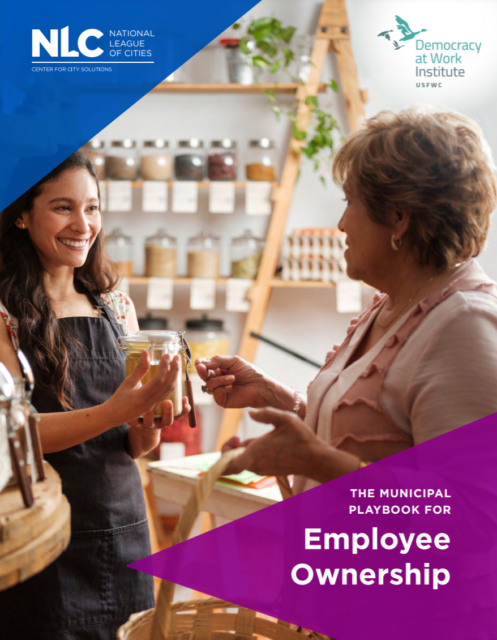Employee ownership offers many benefits for cities looking to grow their economies and develop their workforce. It fosters job security and business stability, encourages higher wages, helps workers build their assets, and produces higher quality jobs. Furthermore, it helps close racial and gender gaps in wealth and income and reduces the risk of local small businesses closing.
This playbook from the National League of Cities (NLC) and the Democracy at Work Institute helps cities integrate employee ownership into their municipal economic and workforce development strategies. It offers three broad approaches based on common problems that many cities, towns and villages face:
- Supporting legacy businesses in transitioning to employee ownership
- Creating quality jobs for people who are left out of the mainstream job market
- Fostering small business resilience and growth through secondary cooperatives
Providing municipal assistance for businesses to adopt and implement employee ownership business models can help communities recover from the pandemic strongly, and more equitably. Equipped with recovery and reinvestment funding, cities, towns and villages are faced with a unique opportunity to spur the adoption of employee ownership business models, and thereby address the acute needs of small businesses while establishing long-term supports for the community.
Download the report to learn more about how your city can explore and support employee ownership to help preserve local jobs and businesses, address the racial and gender wealth and income gap, and improve access to work and quality jobs.

